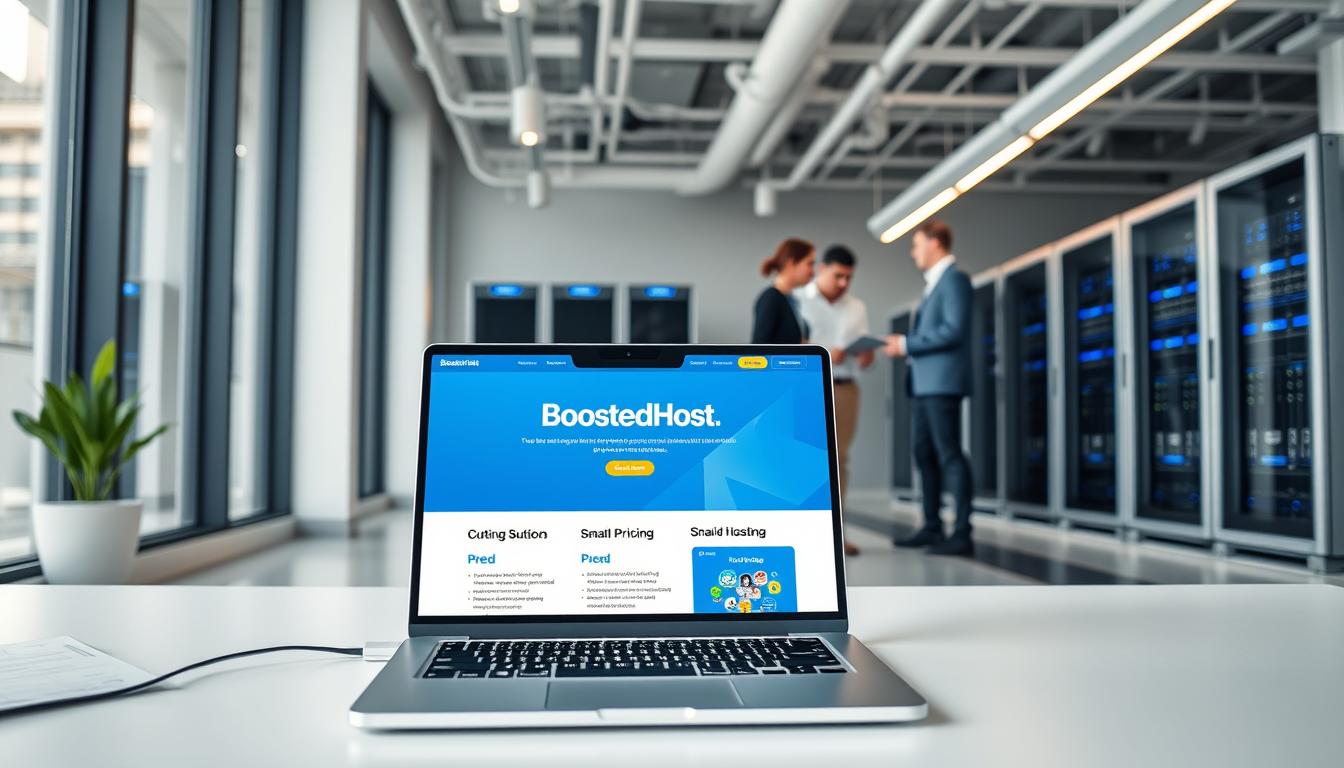We know how personal a website can feel. We built sites, fought late-night outages, and weighed the cost of every plan. That close, human side matters when you pick a web hosting partner.
In this guide, we cut through marketing noise. We compare real-world performance, uptime, pricing clarity, and support outcomes. Expect plain talk about speed, daily backups, malware protection, SSL, CDN, and developer tools.
Our goal is to help small businesses, beginners, and agencies choose an option that fits their needs and budget. We highlight where a Swiss-engineered stack delivers sub-200ms TTFB and where a large provider’s ecosystem and promos help new users get started fast.
Key Takeaways
- We focus on measurable outcomes: speed, uptime, and real support results.
- One provider emphasizes performance and included features for fewer surprises.
- The other offers a familiar ecosystem, promos, and easy entry for beginners.
- Transparent pricing and daily backups matter for long-term costs.
- By the end, you’ll know which hosting provider matches your growth plan.
At a glance: who each web hosting provider best serves in the present market
Different users need different hosting strengths — speed, simplicity, or scale. We map clear options for personal websites, small businesses, agencies, and beginners so you pick the right fit fast.
Quick summary:
- Beginners: Orbit AI site builder launches a professional site in under five minutes with SSL, daily backups, malware protection, and CDN included.
- Small businesses: Transparent pricing and included security help control costs and risk while delivering enterprise-grade speed.
- Agencies: Multi-region infrastructure, LiteSpeed performance, Git, Docker, and staging support multi-site workflows and low latency.

Alternatively, a familiar, WordPress-friendly provider works well for users who value promo pricing and one-click installs. Expect intro deals, possible upsells, and higher renewal rates. Choose based on speed under load, included security, CDN reach, and support responsiveness.
| Target user | Best fit | Why |
|---|---|---|
| Beginners / personal websites | Orbit AI builder | Fast launch, included SSL/backups, minimal setup |
| Small businesses | Transparent plans provider | Predictable pricing, security bundled, performance |
| Agencies / developers | Performance-first hosting | Staging, Git, Docker, multi-region speed |
Performance showdown: speed, uptime, and global reach
Real performance is measurable: we check TTFB, caching behavior, and how servers react under load. This matters for conversions, SEO, and user retention.
Server tech and caching: One provider uses ultra-fast LiteSpeed servers with built-in server-level caching and QUIC/HTTP/3 support. That setup cuts server response times compared to traditional Apache or mixed stacks. The result: better Core Web Vitals and faster repeat views.
Measured speed and uptime: With sub-200ms global TTFB, sites feel instant across regions. Average uptime sits at 99.99% — under five minutes of downtime monthly on average. That stability keeps checkouts and campaigns online during spikes.
Global reach and developer support: Multiple data centers in Switzerland, the USA, Europe, and Asia plus a global CDN deliver content close to users. Full developer stacks — PHP, Node.js, Python, Git, Docker, and staging — make deployment predictable. 24/7 expert support rounds out the performance story.

| Area | What to expect | Why it matters |
|---|---|---|
| Server stack | LiteSpeed + advanced caching | Faster TTFB and improved SEO |
| Measured speed | Sub-200ms global TTFB | Lower bounce, better conversions |
| Uptime | 99.99% average | Minimal downtime for sales and campaigns |
| Global reach | Data centers: CH, US, EU, AS + CDN | Fast delivery to worldwide visitors |
| Developer features | PHP, Node.js, Python, Git, Docker, staging | Smoother builds and safer releases |
BoostedHost vs Bluehost: pricing transparency and plan value
Pricing should be simple, predictable, and focused on real value—not surprise fees. We look beyond promo tags to see what each hosting service actually delivers year after year.
Transparent pricing vs. higher renewal rates and upsells
One provider markets clear, all-in plans that include essentials. That means no surprise add-ons at checkout.
By contrast, the common promo model hides higher renewal rates and frequent upsells. Model your 2–3 year cost, not just month one.
What plans come with by default
Included features: SSL, email hosting, daily backups, malware protection, and a global CDN—standard on performance-focused plans. That reduces the need for third‑party plugins and lowers ongoing costs.
Free domain name trade-offs
A free domain for the first year is attractive. But clarity about ongoing domain and renewal fees matters more for long-term budgeting.
Flexible hosting plans for personal sites, small businesses, and agencies
Plans scale from single-site starters to agency-grade stacks with staging and higher resource limits. Beginners get safety by default, and advanced users get predictable performance.
“No surprise upsells at checkout speeds decisions—and keeps costs honest.”
For user feedback, see customer reviews on customer reviews.
Features that matter: WordPress hosting, WooCommerce, and AI tools
We focus on the hosting features that actually keep WordPress sites fast and secure under real traffic.
Managed WordPress hosting depth: Our managed wordpress approach includes staging environments, automated updates, and consistent performance. Staging keeps your production site stable while you test themes and plugins.
Server-level caching and LiteSpeed acceleration reduce plugin load and speed up the site. That matters for core metrics and conversions.
WooCommerce readiness: speed, security, and checkout experience
Fast TTFB, free SSL, daily backups, and built-in malware protection secure the checkout flow. These features reduce cart abandonment and protect customer data.
Orbit AI Website Builder: launch a professional site in under five minutes
Orbit’s AI builder creates a polished website quickly. You can get a site live, integrate email, and start collecting leads in minutes.
“Build fast, test safely, and scale without surprise costs.”
- Staging + updates for safer releases.
- Server-level caching to avoid plugin conflicts.
- WooCommerce focus: performance and security by default.
- Free email hosting to simplify operations.
| Feature | What it delivers | Who benefits |
|---|---|---|
| Managed WordPress | Staging, automated updates, consistent performance | Agencies, businesses, developers |
| WooCommerce support | Fast TTFB, SSL, daily backups, malware protection | Online stores and merchants |
| Orbit AI builder | Professional site in minutes, email ready | Beginners and small businesses |
For a clear path to performance-focused hosting solutions, see our recommended plan and signup options at managed wordpress plans.
Support and reliability: resolving issues fast with 24/7 experts
When issues hit, fast expert help keeps your site running and your customers happy. We prioritize real response times and clear recovery paths. That matters for sales, reputation, and peace of mind.
Support responsiveness: minutes-to-resolution vs. potential wait times
Rapid response: Our 24/7 expert team aims for minutes-to-resolution. That reduces downtime and revenue loss for campaigns and storefronts.
Always-on help is staffed by engineers trained on LiteSpeed and modern stacks. They deliver actionable fixes any hour.
Resource protection and backups: when isolation helps busy servers
At scale, one provider uses Resource Protection to isolate noisy accounts. That keeps shared servers stable during spikes.
Backup expectations: Daily backups and malware protection are included on the reliability-focused plans. Other entry shared plans may need CodeGuard or higher tiers for guaranteed backups.
“Minutes matter: faster resolution and included backups reduce firefighting and protect business continuity.”
- Support — 24/7 experts with short resolution windows.
- Reliability — 99.99% uptime, daily backups, and built-in security.
- Shared stability — resource isolation helps websites on busy servers.
- Docs & videos — both providers supply knowledge bases and how-to videos for users.
| Area | Reliability-focused hosting | Large-scale provider |
|---|---|---|
| Response | Minutes-to-resolution, 24/7 expert support | 24/7 chat/phone/email; possible queue delays on entry tiers |
| Backups | Daily backups included | Shared plans may require CodeGuard; WP Pro includes daily backups |
| Stability | 99.99% uptime, LiteSpeed + CDN for consistent performance | Resource Protection isolates high-use accounts to help stability |
| Learning | Documentation and training videos for fast onboarding | Extensive knowledge base and videos for common tasks |
Conclusion
, Our conclusion focuses on the real trade-offs between speed, features, and long-term costs.
Choose the hosting provider that matches your priorities. If speed, uptime, and predictable value matter most, pick the high‑performance host—LiteSpeed, sub‑200ms global TTFB, 99.99% uptime, and bundled features (SSL, email, daily backups, malware protection, CDN).
For beginners and fast launches, the Orbit AI Website Builder gets websites live in minutes and pairs with staging and developer tools as you grow.
If you value a WordPress‑centric ecosystem and a free domain for the first year, consider the other provider’s managed wordpress tiers—just budget for renewals and backup add‑ons.
Bottom line: model multi‑year costs for domain name and backups, verify what each plan includes, and pick the plan that keeps your site fast, secure, and easy to manage.
FAQ
Which hosting provider is better for small businesses and why?
We recommend the provider that matches priorities. If your priority is raw performance, LiteSpeed caching, and developer tools like Git and staging — choose the host with optimized stacks and global CDN. If you need broad beginner support, simple site builders, and a strong onboarding experience, pick the host known for accessible managed WordPress plans and 24/7 support. Both options can serve small businesses; pick based on speed, management features, and budget.
Do either hosting providers include a free domain name with plans?
Yes — many shared and managed plans include a free domain for the first year. Read the renewal policy. Domains often renew at regular registry rates after year one. We advise checking domain management tools and WHOIS privacy options before you commit.
How do uptime guarantees compare and what should we expect in real use?
Look for 99.99% uptime commitments and clear SLA terms. In practice, top hosts manage redundancy, DDoS protection, and fast failover to keep downtime minimal. For mission-critical sites, choose a provider with multi-region data centers and proactive monitoring to handle spikes and maintenance with minimal disruption.
Are managed WordPress plans worth the extra cost?
Yes for most businesses. Managed plans include automatic core and plugin updates, staging environments, optimized caching, and expert support — reducing maintenance time and security risk. If you prefer hands-on control and lower cost, unmanaged VPS or shared plans may suffice.
What performance differences should we expect: TTFB and real-world speed?
Expect sub-200ms TTFB on well-optimized stacks with regional CDN and LiteSpeed or advanced caching. Real-world page load depends on images, scripts, and theme efficiency. Use CDN, image optimization, and caching rules to turn fast TTFB into fast pages for users worldwide.
Which provider offers better developer support (PHP, Node.js, Python, Docker, Git)?
Choose the host that lists the stacks you need. Some providers focus on PHP and WordPress, while others support Node.js, Python, Docker, and Git deployments. If you need staging, SSH, and container support, pick a provider with modern developer tooling and clear docs.
How do renewal rates and upsells affect long-term pricing?
Intro pricing can be attractive. Renewal rates may jump significantly. Check add-on costs for backups, SSL, email, and malware protection. Transparent providers show full-term pricing and fewer surprise upsells; that reduces long-term costs for businesses and agencies.
Do hosting plans include backups, malware protection, and email by default?
Some plans include daily backups, basic malware scanning, and email hosting. Others offer these as paid add-ons. Verify backup retention, restore options, and whether malware removal is manual or automated before buying.
How global is the CDN and data center coverage?
Top hosts offer multiple data center regions — North America, Europe, and Asia — plus integrated CDNs. Choose a provider with POPs near your users. That reduces latency and improves performance for global audiences.
Are WooCommerce stores supported and optimized for checkout speed?
Yes when you choose hosting tuned for eCommerce. Look for fast PHP, object caching, SSL by default, and performance-tested WooCommerce stacks. Optimized hosting reduces cart abandonment by improving checkout speed and security.
What level of support response time can we expect?
Response times vary by plan and provider. Priority plans often offer minutes-to-resolution with dedicated channels. Standard shared plans aim for timely replies but may see longer wait times. For mission-critical sites, choose premium support or managed plans.
Can we migrate existing WordPress sites easily?
Most hosts provide free or assisted migrations for WordPress. They use automated tools or manual help. Confirm migration limits, downtime windows, and whether they handle serialized data, email, and DNS changes.
Is a website builder included and can it launch a site fast?
Many hosts include modern builders and AI tools that let you launch a basic site in minutes. These tools are great for personal websites and small businesses. For advanced customization or heavy eCommerce, a managed WordPress or custom stack is better.
Which hosting choice is best for agencies managing multiple client sites?
Agencies should prioritize scalable plans, white-label options, multi-site management, staging, backups, and agency-friendly billing. Managed WordPress platforms with collaborator access and per-site performance monitoring are often ideal.
How do security features compare across hosts?
Look for built-in firewalls, WAF, malware scanning, automatic updates, free SSL, and DDoS mitigation. The strongest providers combine preventive tools with fast incident response and routine backups to minimize risk.
What storage and bandwidth limits should we watch for?
Shared plans often cap storage and list “unmetered” bandwidth with fair-use clauses. For large media, video, or high-traffic sites, choose SSD storage tiers or VPS/cloud plans with clear quotas. Consider CDN offload to reduce storage and bandwidth pressure.




